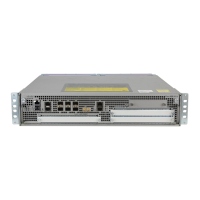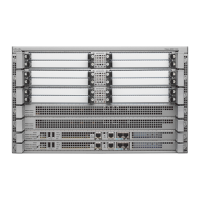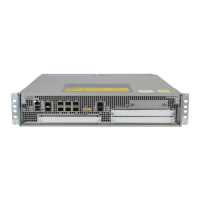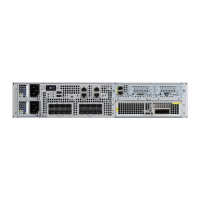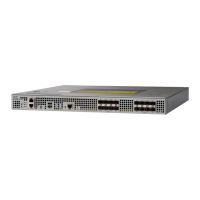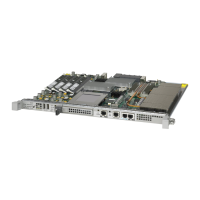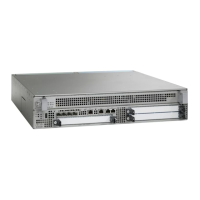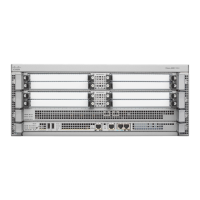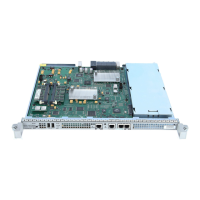7-3
Cisco ASR 1000 Series Aggregation Services Routers SIP and SPA Software Configuration Guide
OL-14127-08
Chapter 7 Configuring the ATM SPAs
Configuration Tasks
To perform the basic configuration on each subinterface, use the following procedure beginning in global
configuration mode:
Command or Action Purpose
Step 1
Router(config)# interface atm
slot/subslot/port.sub-interface [point-to-point | multipoint]
Enters subinterface configuration mode for the
specified subinterface, where:
• point-to-point—(Optional) Specifies a
point-to-point subinterface for a single PVC
configuration.
• multipoint—(Optional) Specifies a multipoint
subinterface to support PVCs for multiple
routers.
Step 2
Router(config-subif)# ip address address mask [secondary] Assigns the specified IP address and subnet mask to
the interface. Repeat the command with the optional
secondary keyword to assign additional, secondary
IP addresses to the port.
Step 3
Router(config-if)# pvc [name] vpi/vci Configures a new ATM PVC by assigning its
VPI/VCI numbers and enters ATM VC configuration
mode. The valid values for vpi/vci are:
• name—(Optional) An arbitrary string that
identifies this PVC.
• vpi—Specifies the virtual path identifier (VPI)
ID. The valid range is 0 to 255.
• vci—Specifies the VCI ID. The valid range is 32
to 65535. Values 1 to 31 are reserved and should
not be used, except for 5 for the QSAAL PVC
and 16 for the ILMI PVC. ILMI is unsupported
on the Cisco ASR 1000 Series Routers.
Note When using the pvc command, remember that the vpi/vci combination forms a unique identifier for the
interface and all of its subinterfaces. If you specify a vpi/vci combination that has been used on another
subinterface, the Cisco
IOS software assumes that you want to modify that PVC’s configuration and
automatically switches to its parent subinterface.
Step 4
Router(config-subif)# description string (Optional) Assigns an arbitrary string, up to 80
characters long, to the interface. This string can
identify the purpose or owner of the interface, or any
other information that might be useful for monitoring
and troubleshooting.
Step 5
Router(config-subif)# no shutdown Enables the interface.
Step 6
Note Repeat Step 1 through Step 5for each ATM SPA subinterface to be configured.
Step 7
Router(config-subif)# end Exits interface configuration mode and returns to
privileged EXEC mode.
